At Murthy Immigration Services, we are often contacted by H1-B petitioners (Employers) / H1-B beneficiaries (Employees) for assistance with their application at U.S. Consulate / U.S. Embassy in India. In most instances they contact us after they receive a request for additional information under Section 221(g) of the Immigration and Nationality Act. In this edition of the MurthyIndiaBulletin, we look at the current trend on H1-B application at the consulate and provide some tips on how to be prepared ahead of the interview to try and avoid possible delay by providing all relevant information / documentation upfront.
First Time H1-B Applicants:
If one is applying for a H1-B visa for the first time, s/he must remember that the visa officer will be looking for the following among other things:
1) There is a genuine job offer available for the H1-B beneficiary; and
2) That the beneficiary is qualified for the position either based on his / her education or experience;
The adjudication process could be different depending on the nature of business of the petitioner. If the petitioner is a product development company OR has requirement for their own organization, this will be construed as direct employer. Alternately, if the petitioner is looking to place the H1-B beneficiary on external projects with clients OR to develop a product for a particular company they will be invariably construed as a consulting company. If the petitioner is a direct employer then the consular officer may want to ascertain details on the project / product the H1-B beneficiary will be working on and it is good to carry documents to evidence / substantiate this aspect. If the petitioner is a consulting company then the consular officer will want to make sure that the beneficiary will be working (i) either with a client OR (ii) on an internal project which is being developed by the petitioner for a client. The supporting documents will vary on a case-to-case basis.
Applicants Who Have Worked In The U.S. And Are Applying For a H1-B Visa:
If the beneficiary entered the U.S. pursuant to H1-B status OR has changed status to H1-B from another category of visa then in addition to the above, the consular officer will want to make sure that the beneficiary was paid in accordance with law and consistently i.e. the beneficiary was never benched. This can be substantiated by providing the W2 / pay slips / bank statements, etc.
Request For Documents Under Section 221(g) Of The Immigration and Nationality Act:
As indicated earlier, we are often contacted by H1-B petitioners / beneficiaries who have been issued a blue sheet by the consulate with a list of documents which are required to adjudicate the application. One must understand that the purpose of requesting these documents is to make sure that the petitioner has a genuine requirement for a job and is in good financial standing to pay the wages for the beneficiary and in some instances to ensure that the beneficiary is qualified for the position offered. This has been triggered by many consulting companies which mushroomed over the years and filed H1-B for non-existent jobs or to bring a beneficiary to the United States and then try to place the beneficiary on a project. Though providing these documents may be inconvenient or seem impractical, the purpose of requesting these documents is to eliminate or minimize such instances indicated above and protect the H1-B beneficiary.
Importance of Providing Honest Response:
One must understand that s/he needs to provide genuine documents / information to evidence the qualification and availability of job position. Providing false statements about the work experience, education or job will result in a permanent ineligibility from entering the United States and could land one in prison.
Prepare Ahead of Interview:
It is advisable to carry clear unambiguous documents to evidence qualification of the beneficiary for the position offered and documents to evidence the petitioner’s requirement for the position in the form of detailed description of the project and the beneficiary’s role in the same or letter / contract from client to evidence availability of job for the beneficiary. If the beneficiary has worked in the U.S., it is important to document the fact that the beneficiary has been paid in accordance with law and has always been on status. More than anything, the beneficiary should be in a position to provide clear response about his/her role or proposed employment in the U.S. when questioned at the visa interview.
Delays on Account of Petition Information Management System (PIMS) / Security Advisory Opinion (SAO):
It may be noted that the PIMS database needs to be updated for the issuance of H and L visas. If in some cases the database is not updated, the consular officer will raise a request for the same and the visa will be issued only after the same is updated. Further, if the applicant has a background in any of the Technology Alert List or will be working on a sensitive project, then the possibility the consular officer instructing the applicant to complete a SAO questionnaire is very high. Regular MurthyIndiaBulletin readers may recollect that we discussed the SAO in detail in our October 2009 bulletin.
Conclusion:
It is always better to be prepared for the visa interview with all the documents and information and the beneficiary should have clear information to be able to respond to all the questions related to proposed / existing employment in the U.S., the applicants background and other related questions. Being honest and upfront maximizes the possibility of visa issuance – however, applicants should be aware of the possible delays and plan their application well ahead.
Copyright © 2009, MISPL – All Rights Reserved
